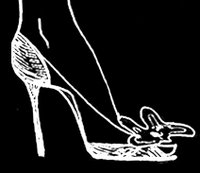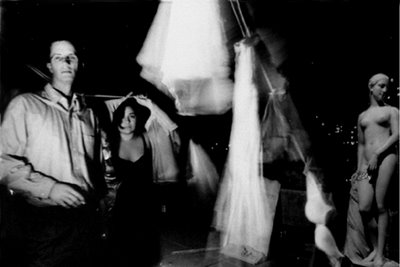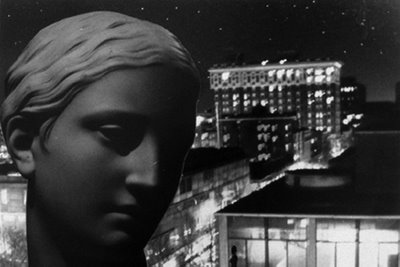
Lansing Potter, wunderkind, visited a bookstore between Park and Lexington Avenues every time he went into the city. The bookstore housed a revolving rack of erotic paperbacks, and it was the purpose of each of Lansing’s visits to purchase such a paperback for the train ride home. Not only did the book pass the time of the train ride more efficiently than a copy of The New York Times, for example, but it sparked in Lansing the charge he needed to sense more fully the erotic element of life. Lansing transformed the secret rush and palpitation induced by the material into an overwhelming awareness of the secret rushes and palpitations already existing in the world.
The mechanics of sexuality that lay on the bottom of his erotic texts Lansing appreciated no more than the biblical exegete does the sand. Sex, to Lansing, was at best a poor metaphor for something entirely else. The fact that most of the people around him – his family, classmates, and clergy – saw sex as the worthiest of endeavors, Lansing considered no more than an unnatural aberration. He thought those people deluded into sex by Madison Avenue and Freud, believing with all his fervent not only that the prefixes affixed to sexuality were false and imprisoning, but that sexuality itself was false and imprisoning. How many lives would be saved, he thought, if girls didn’t lose sleep to force a fantasy and boys didn’t strain to peek at fashion magazines?
The issue for Lansing was expressly political. He rehearsed his speech: “Libido is a handy tool for the people on top to maneuver the people on bottom. Make a person want something and you’ll make them feel inadequate; make them feel inadequate and you can make them do anything you want. You can kill them.” There is another hand, however, and it holds fast to erotica. Lansing held fast to it.
Lansing felt and divorced from sex the divine love that people attribute to it. He skimmed the love-excitement from his books, put it in himself, and saw it in every bend of light and approaching figure. Unlike his forebears, Lansing would have given all his skin, not just his foreskin, for a hint of foresight into forces seen. For the colors about Lansing bled when he looked at them, the din had a melody, and the Earth’s center of gravity was his own when he read those books. Sex was a metaphor for everything else and if he experienced the metaphor on paper then he could experience its transubstantiate in reality – a warm, melting reality whose only purpose was to hold Lansing close and kiss him till he died.
The excitement dulls. Eventually, sex is just a billboard again and a billboard just a rectangle again. Lansing rode the train back into the city and bought another book.


No comments:
Post a Comment